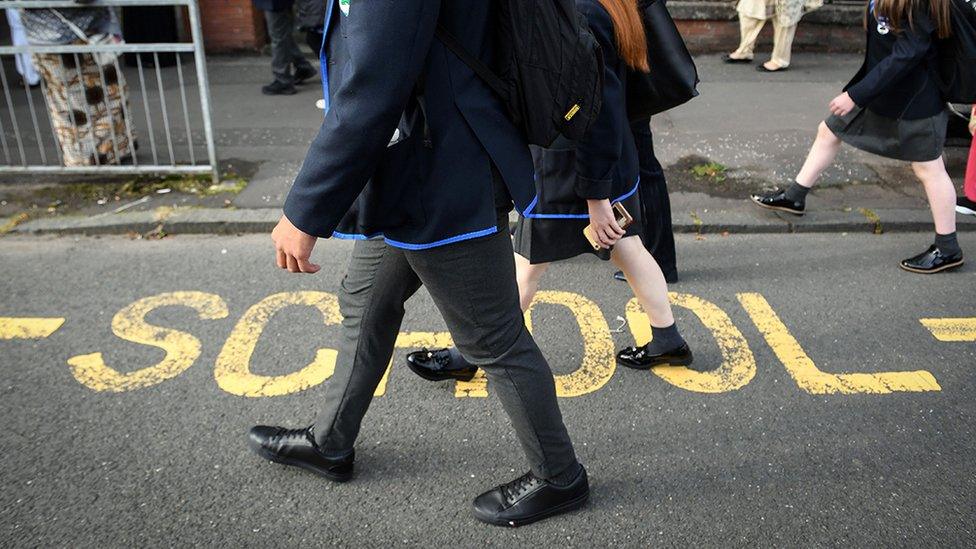Integrated education needs more political support, says report
- Published
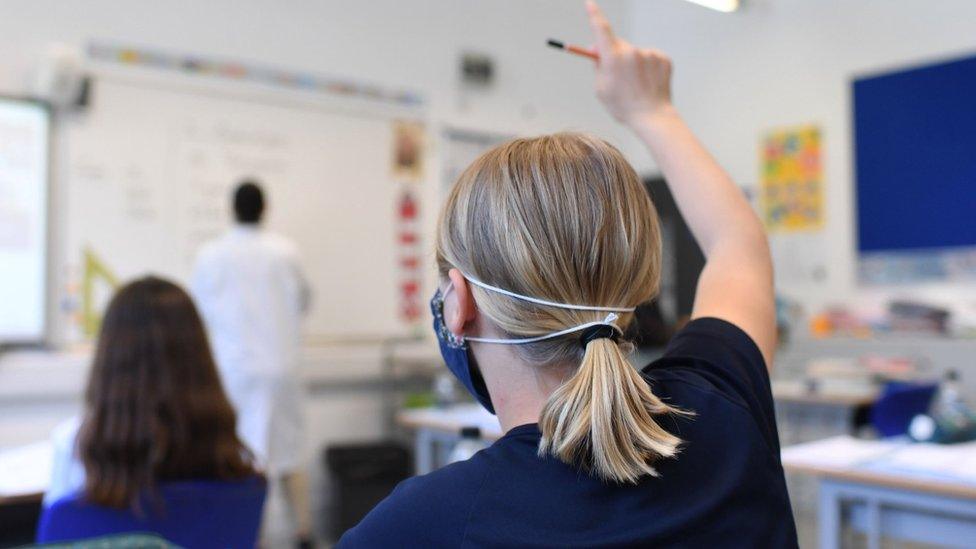
Politicians "need to step out from behind their respective flags" if there is to be radical change to Northern Ireland's school system.
That is according to a new Ulster University (UU) briefing paper on the differences between shared and integrated education.
It identified a history of "denominational protectionism and community enmity".
As a result, this had created a mainly divided school system.
Only 143 out of about 1,000 schools in Northern Ireland have at least 10% of pupils from a Protestant background and 10% from a Catholic background.
While the research from the UU's Unesco Centre for Education is independent, its publication was partly funded by the Integrated Education Fund.
Just over 7% of pupils (24,000) in Northern Ireland are taught in integrated schools, which aim to enrol approximately equal numbers of Catholic and Protestant children, as well as children from other religious and cultural backgrounds.
Many schools from other sectors take part in shared education, which involves pupils from separate schools and different backgrounds engaging in some joint classes and activities.
The latest briefing paper from UU's Unesco Centre explores the differences between the two approaches.
"The historical separation of schools along community and religious lines remains a dominant feature of the educational system," it said.
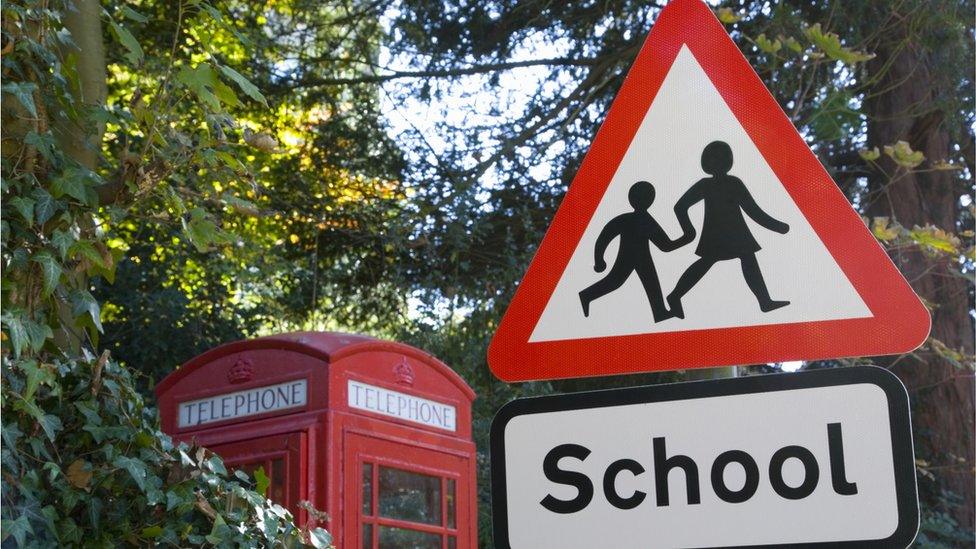
The briefing paper said that both integrated and shared education "aspire to bringing children together," but "each draws on a fundamentally different philosophy and perspective".
It claimed that shared education "leaves the divided system untouched and unchallenged," but acknowledged that it is a "pragmatic approach".
"Shared education also aims to prioritise parental choice - for children to attend a school that echoes their family's beliefs - and to address the concern expressed by some parents that Integrated Education is presented as "the only solution to ethnic/racial divisions," the UU paper said.
But the paper is critical of what it claims is a lack of political support for integrated education.
It argued that the Democratic Unionist Party (DUP) and Sinn Féin have "demonstrated antipathy or ambivalence towards supporting the growth of integrated education."
"Put simply, there is a shortage of integrated schools," the paper said.
Lukewarm support
"Supply does not meet demand."
The paper said that integrated education has met "political opposition from most sides and lukewarm, at best, support from churches".
"Politically, integrated education has traditionally been perceived as being aligned with the Alliance Party who hold only a relatively small number of seats in the assembly."
"Without the backing of the 'Big Two' (currently the DUP and SF) it is difficult to see how further growth can be achieved."
"Political leaders need to step out from behind their respective flags and demonstrate the courage and ambition required to radically change the system - preserving the status quo by shoring up the current system is neither fiscally nor socially prudent."
The New Decade New Approach (NDNA) deal agreed in January 2020 said that Northern Ireland's education system - with a range of sectors and school types - was "not sustainable".
It also promised a "fundamental review" of Northern Ireland's education system.
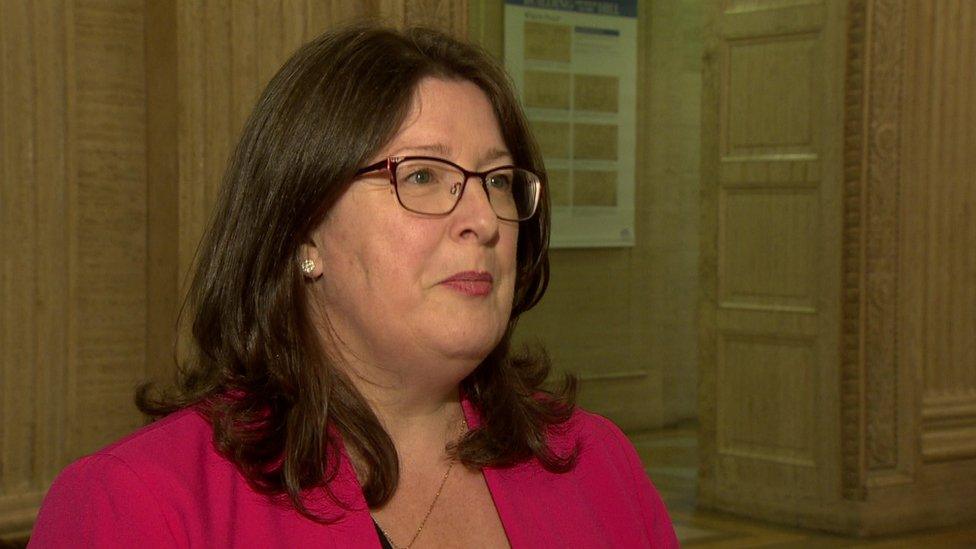
Kellie Armstrong says all cultures are respected through integrated education
The independent panel to carry out that review was appointed by the Department of Education in September 2021.
Alliance MLA Kellie Armstrong has brought forward a private member's bill which would increase the number of integrated school places and set targets for the number of children being educated in integrated schools.
The clauses of the bill are currently being debated by Stormont's education committee, and some politicians and church representatives have expressed concerns about aspects of it.
Related topics
- Published8 July 2021
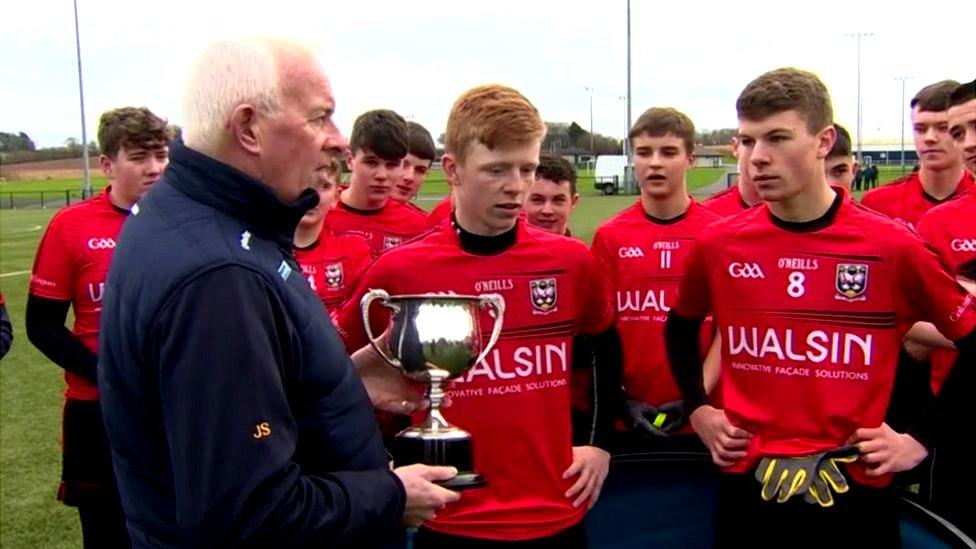
- Published27 May 2021
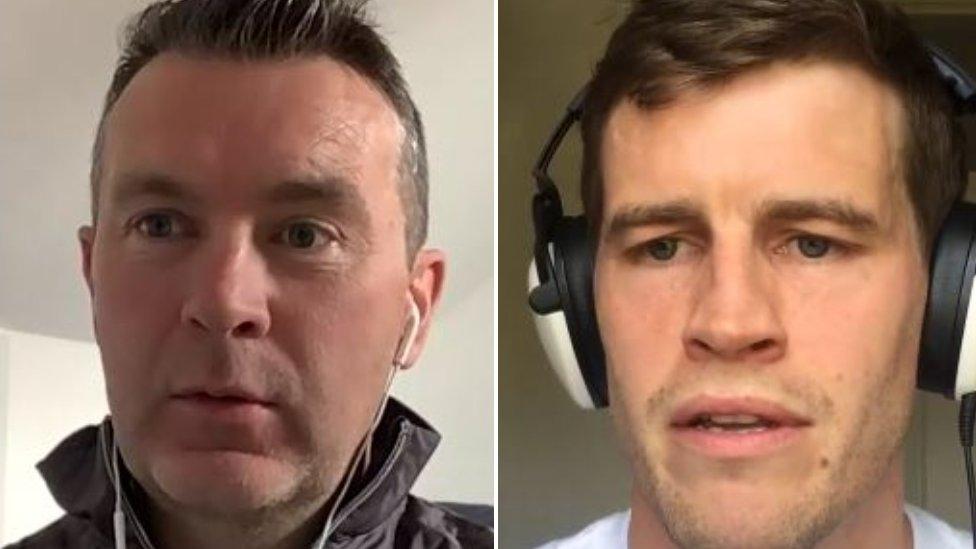
- Published25 November 2020
